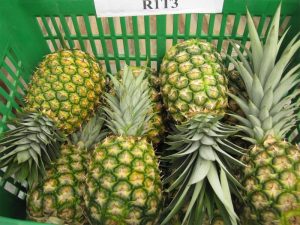The herbicide bromacil is one of the most used by the pineapple sector in their plantations, and the Directorate of Environmental Quality Management (DIGECA), Ministry of Environment, Energy and Mares (MINAEM) recognized that there are levels of herbicide in the water and are now wrorking to develop decree restricting its use.
“We have analyzed, from the environmental point of view-that bromacil is a highly toxic, especially to humans, but is highly soluble and easily after application filter and falls into groundwater,” said the expert Elidier Vargas, who explained that this leak is the cause of that waste appearing in the water for human consumption.
The decree would establish the conditions under which the product should be applied, because employers often do not realize that the herbicide applied on surfaces which are aquifers. Together they establish a permanent monitoring system to determine the quality and efficiency of the restrictions.
“We realize that if you are coming and so we have to try to stop appearing,” said Vargas, but still do not know the risk of this herbicide concentration in drinking water for the health of Costa Ricans.
Vargas admitted that the concentrations found are low compared to international standards of tolerance (in Costa Rica there are no regulations based on national environmental conditions).
The bromacil has been banned in several countries, such as Germany (1993), Belize (1990), Slovenia (1997) and Sweden (1990) due to the impact on health and the environment that may be the presence of this chemical into the water .
The Costa Rica News (TCRN)
San Jose Costa Rica


